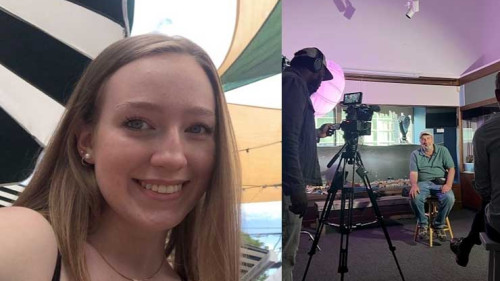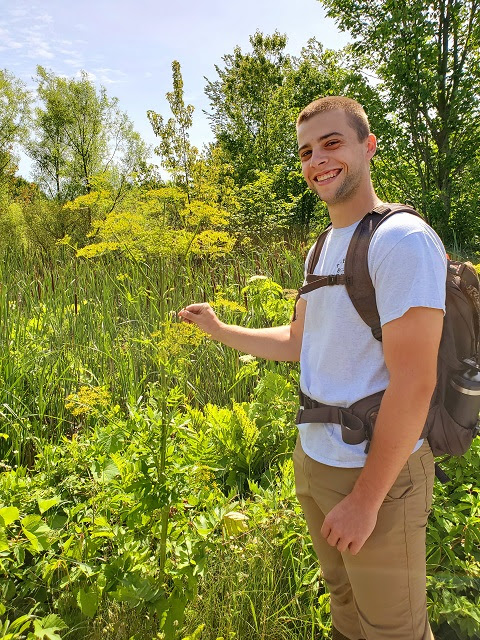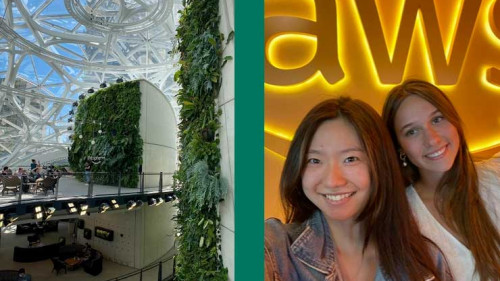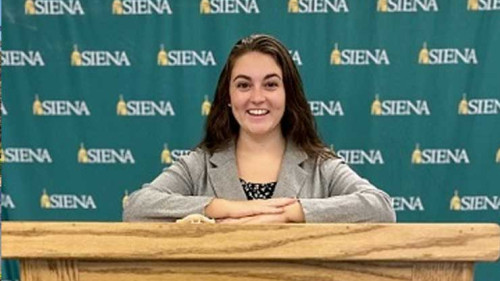

Giant hogweed blooms with a captivating white flower. But be warned, the federally listed noxious weed is responsible for painful burns and permanent scarring. The plant's sap, when combined with sunlight and moisture, can cause severe burns within 24 to 48 hours. New York State law prohibits its possession with the intent to sell or propagate. If you see it, steer clear. Though it was the job of Greg Zuill '23 to track it down.
This summer, the environmental science major was an intern for Capital Region PRISM (Partnership for Regional Invasive Species Management). Wearing a Tyvek suit (picture a beekeeper) and gloves, Zuill hunted the giant hogweed (it can grow taller than 14 feet) and removed it, often to protect neighbors nearby.
An invasive species in an organism (plant or animal) that is not indigenous to a particular area and can cause great environmental or economic harm. Zuill was responsible for identifying early outbreaks and managing known infestations (including the hogweed) for the protection of our local environment.
Hogweed wasn't Zuill's only nemesis this summer. He also encountered hemlock wooly adelgid, an invasive aphid-like insect, native to Asia, that attacks North American hemlocks. Plus, he fielded plenty of calls about gypsy moths, a non-native insect from France. Each time, his team needed a plan. And, perhaps more than anything, that was the most valuable lesson from the internship.
In class last year, Zuill learned how to write a management plan in case of a crisis. This summer, he was part of a team that developed important invasive species management plans that will be used for years to come.
Zuill has always been fascinated by the impact of human and animal interaction on the environment. He'd like to turn that passion into a career, perhaps working on environmental policy for the Department of Environmental Conservation. The internship exposed Zuill to a number of different career paths, way more than he expected, and they all aligned with his interests. Plus, he beat back the hogweed in 11 different locations... maybe even an area near you?
“Working with Capital Region PRISM allowed me to further my understanding of how I can help influence the environment around me for my peers and for the better of my community. From small actions such as talking with single stakeholders about preventative measures to being able to be on the frontline removing a plant only found in one part of the state, it all makes a difference in the protection of the world around us. I look forward to being able to continue helping protect and take care of the environment for both our generation and those to come after us.”
Greg Zuill '23

